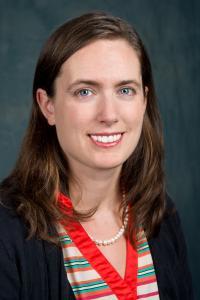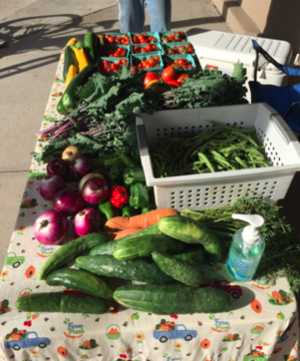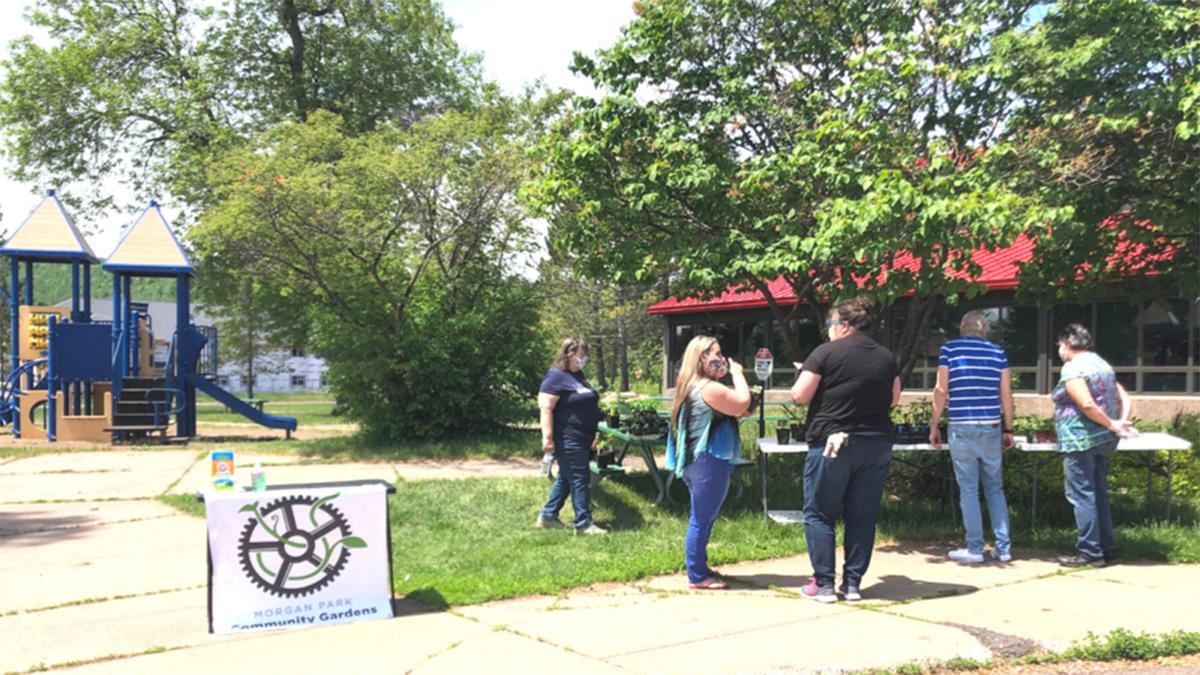A UMD faculty member and student are partnering with the Morgan Park community to ease the neighborhood’s food desert.
 Abigail Clarke-Sather, assistant professor of Mechanical & Industrial Engineering, and Mealat Worku, a UMD senior majoring in environment and sustainability, are distributing free produce that was grown on UMD’s farm to raise awareness about a future Morgan Park community garden.
Abigail Clarke-Sather, assistant professor of Mechanical & Industrial Engineering, and Mealat Worku, a UMD senior majoring in environment and sustainability, are distributing free produce that was grown on UMD’s farm to raise awareness about a future Morgan Park community garden.
The media is invited to interview them tonight, Monday, September 28, 2020 from 5 - 7 p.m. Dr. Clarke-Sather and Worku are tabling and community member Rumbidizai Masawi is demonstrating kale cooking under the awning of the United Protestant Church, 830 88th Ave West.
Planting the Seed
The idea for a community garden is seeded in a grant that Clarke-Sather received to help create equity in greenspace across Duluth neighborhoods.
The University of Minnesota Institute on the Environment/Department of Diversity, Equity, and Inclusion (IonE DEI) grant aligned with Clarke-Sather’s involvement in Duluth NAACP's Health and Environmental Equity Committee.
In her research, she discovered that people wanted well-maintained green space and that food insecurity was an issue. Clarke-Sather approached the Morgan Park Community Club with the idea for a community garden, and the response was positive.
“Greenspace can positively influence health, plus a community garden empowers both community involvement and healthier eating,” Clarke-Sather explains.
Mealat Worku, who’s interning on the project, adds that the closest grocery store is more than ten miles away from Morgan Park. “When you buy food in small quantities that they sell and gas stations, that drives up the price. It's not very economical for feeding yourself or feeding a family.”
Row by Row
Once plans for the garden were in place and the grant was submitted, Clarke-Sather faced a challenge. “How do you get community involvement during COVID-19’s required social distancing?” She quickly hired Worku, who was working at UMD’s Land Lab, as her intern.
 With the full support and generosity of Teresa A. Bertossi, director of outreach, education, and research at UMD’s Land Lab, Worku started spending Monday nights in Morgan Park giving away the farm’s food to residents. She’s done this every week since August 11, with her last evening scheduled for Monday, September 28.
With the full support and generosity of Teresa A. Bertossi, director of outreach, education, and research at UMD’s Land Lab, Worku started spending Monday nights in Morgan Park giving away the farm’s food to residents. She’s done this every week since August 11, with her last evening scheduled for Monday, September 28.
While raising awareness for the community garden, Worku’s shared cucumbers, carrots, onions, green beans, dinosaur kale, purple kale, cherry tomatoes, roma tomatoes, a lot of zucchini, and now squash and pumpkins. “I really, really love doing this. It's kind of become my favorite thing. You can see how changes in lifestyle and changes in diet can affect people's health.”
Any food that’s not taken that night is given to the Thunderbird-Wren Halfway House in Morgan Park, which serves people in recovery from substance abuse.
The next step is taking the community’s plans for their garden to Clarke-Sather’s “Introduction to Design” engineering students, who are modeling the proposed garden to get cost estimates.
